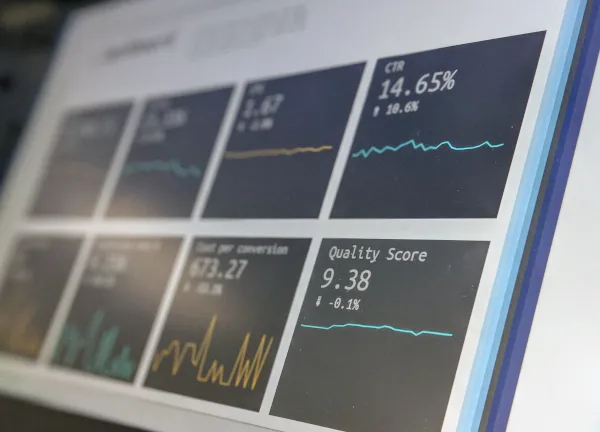Ecommerce has become a major part of the retail industry, and having a strong online presence is essential for any business that wants to succeed. One of the most important aspects of running an ecommerce website is understanding how customers interact with your site and what they are looking for. Analytics and data tracking can help you get a better understanding of your customers, improve your website, and boost your sales. In this blog post, we will cover the key metrics you should track, the tools available for data tracking, and how you can use the data to improve the customer experience on your ecommerce website.
Key Metrics to Track
There are several key metrics that you should track in order to get a comprehensive understanding of how your customers are interacting with your ecommerce website.
Website Traffic and Behavior
- Unique Visitors: This metric measures the number of unique individuals who visit your website.
- Bounce Rate: This metric measures the percentage of visitors who leave your website after only viewing one page.
- Pages per Session: This metric measures the average number of pages a visitor views during a session on your website.
- Average Session Duration: This metric measures the average length of time a visitor spends on your website.

Conversion Rates
- Overall Conversion Rate: This metric measures the percentage of visitors who make a purchase on your website.
- Product-specific Conversion Rates: This metric measures the conversion rate for specific products on your website.
- Shopping Cart Abandonment Rate: This metric measures the percentage of visitors who add items to their shopping cart but do not complete the purchase.
Customer Demographics
- Age: This metric measures the age range of your customers.
- Gender: This metric measures the gender of your customers.
- Location: This metric measures the geographical location of your customers.
- Devices used: This metric measures the devices that your customers use to access your website.

Tools for Data Tracking
Google Analytics is a free and widely used tool for tracking data on ecommerce websites.
- Overview of features: Google Analytics provides a comprehensive suite of features for tracking data on your website, including website traffic and behavior, conversion rates, and customer demographics.
- Setting up Google Analytics: Setting up Google Analytics is relatively simple and can be done in just a few steps.
- Interpreting data: Google Analytics provides a wealth of data, but it can be overwhelming to interpret. You can start by focusing on the key metrics mentioned in the previous section, and then expand your analysis as you become more familiar with the tool.
Other popular tools for data tracking include Adobe Analytics, Mixpanel, and KISSmetrics. Each of these tools provides a different set of features and has its own strengths and weaknesses, so it’s important to choose the right tool for your needs.
Using Data to Improve Customer Experience
Data tracking can provide valuable insights into how customers interact with your ecommerce website, and you can use this information to improve the customer experience in several ways.
Optimizing Website Design and User Experience
- Understanding user behavior: By tracking metrics such as bounce rate, pages per session, and average session duration, you can get a better understanding of how customers interact with your website and identify areas for improvement.
- Improving website navigation: By analyzing the data, you can identify any pain points in the user experience, such as slow loading times or confusing navigation, and make improvements to address these issues.

Personalizing Marketing and Advertising Efforts
- Segmenting customers: By tracking customer demographics such as age, gender, and location, you can segment your customers and create more targeted marketing and advertising campaigns that are specific to each segment.
- Personalizing product recommendations: By analyzing customer behavior and purchase history, you can create personalized product recommendations for each customer to increase their likelihood of making a purchase.
Improving Conversion Rates
- Identifying bottlenecks: By tracking metrics such as overall conversion rate and shopping cart abandonment rate, you can identify bottlenecks in the customer journey and take steps to address them.
- Optimizing product pages: By analyzing product-specific conversion rates, you can identify which products are performing well and which are not, and make changes to improve the customer experience for underperforming products.
Conclusion
Analytics and data tracking are essential for understanding how customers interact with your ecommerce website and for making informed decisions about how to improve the customer experience. By tracking the key metrics, using the right tools, and using the data to make data-driven decisions, you can boost your sales, improve customer satisfaction, and grow your ecommerce business.